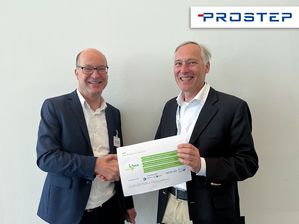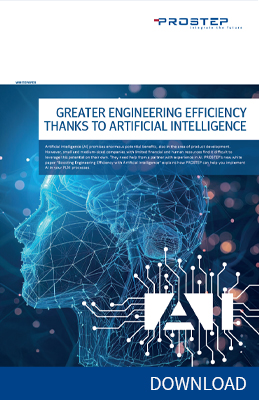 A large proportion of the resources that a product consumes over the course of its lifetime is determined during product development. And that is exactly where Decide4ECO comes into play. The aim of the research project is to develop methods and tools that support decision-making early in the product development process with a view to sustainable production and operation. This involves proactively evaluating the relevant sustainability requirements in the context of the entire product lifecycle and the entire value chain. It is therefore also necessary that the data that provides the basis for analyzing sustainability be collected across the entire production and supply chain.
A large proportion of the resources that a product consumes over the course of its lifetime is determined during product development. And that is exactly where Decide4ECO comes into play. The aim of the research project is to develop methods and tools that support decision-making early in the product development process with a view to sustainable production and operation. This involves proactively evaluating the relevant sustainability requirements in the context of the entire product lifecycle and the entire value chain. It is therefore also necessary that the data that provides the basis for analyzing sustainability be collected across the entire production and supply chain.
It is intended that the data relevant to sustainability be exchanged and communicated via the Manufacturing-X data ecosystem. Within the framework of the project, the partners want to develop models and interfaces that make the data available to all the parties involved via the shared data space. It is also intended that the solutions for evaluating sustainability that build on this be supplemented by AI-based impact analyses with the aim of making it possible to compare product alternatives in terms of sustainability.
"With Decide4ECO, the BMWK is funding a project that focuses on the use of data ecosystems as early as during the product development phase," says Ernst Stöckl-Pukall, Head of Division, Digitalization, Industrie 4.0 at the BMWK. "The aim of the project is to provide support to companies and their supply chains in the context of developing and manufacturing sustainable products. This makes the project a key component in the cross-industry development and scaling of Manufacturing-X. We expect it to provide important impetus for ecological transformation into a circular economy."
In addition to PROSTEP, the Decide4ECO consortium includes the Chair of Product Design at Paderborn University, the IT solution providers CONTACT Software and Nexpirit, the industrial companies BOS, Sonova and Hadi-Plast, as well as Grant Thornton and Brainport Industries as associated partners. The partners from the scientific community will focus on method development and information modeling. The three IT solution providers will map the different use cases in a demonstrator that will then be implemented and tested by the industrial partners.
The legal team from Grant Thornton will ensure compliance with the Data Act and Data Governance Act and provide advice on the legal structure and legal framework of data ecosystems. All the partners will work together on the transfer and dissemination of the project results. In the Netherlands, this role will be performed by Brainport Industries.
As part of the project, PROSTEP will be developing an Eclipse Data Space Connector (EDC) for its tried-and-tested PLM integration platform OpenPDM to enable shared use of the Asset Administration Shell (AAS). The new connector will make it possible to integrate PLM, ERP and ALM systems that are connected via OpenPDM into Manufacturing-X and other data ecosystems. This will ensure availability of the information needed to evaluate sustainability. PROSTEP will also integrate functionality for impact analyses in its digital thread platform OpenCLM so that the sustainability of product alternatives can be evaluated.
"We want to use digital technologies to make it possible for product development to develop products in a sustainable manner and thus facilitate ecological transformation," says Dr. Martin Holland, Director Strategy & Business Development and main contact person for the project at PROSTEP. "We want to improve not only decision-making skills but also verifiability in the context of sustainability."
